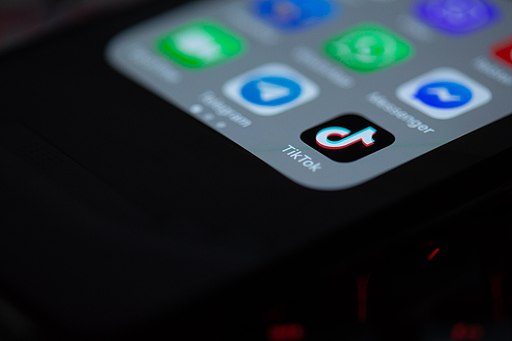
On February 27, Reuters reports, the White House gave federal agencies a 30-day deadline to ensure that all government-owned devices are TikTok-free.
The supposed, but seemingly evidenceless, reason: Because a Chinese company owns TikTok — a smart phone app for creating and sharing short videos — the Chinese government may be using it to spy on Americans.
Well, OK. Ban TikTok from government devices.
But does that really go far enough?
Is TikTok the only app that gathers personal information and might be used by a government, any government, to spy on its users? Not even close.
If you don’t think the US government has been spying on you, using data generated by your phone, you haven’t been paying attention for at least the last decade. In May 2013, now-exiled American hero Edward Snowden blew the whistle on the frightful extent of Washington’s domestic espionage operations.
If the goal is to protect the government, and the government alone, it’s appropriate to not just ban TikTok from government devices, but to ban government use of devices that could conceivably run TikTok or similar apps (including apps that install and run without the users’ knowledge).
No smart phones.
No Internet-connected computers.
No flash drives or cloud — data storage must be restricted to tightly-controlled media. Perhaps a version of the old 5 1/4″ floppy disk, with a security device embedded that goes off if someone attempts to leave a secure area with it.
Perhaps government should be limited to pen and paper, with everything encrypted using one-time pads generated by an army of monkeys rolling dice.
Hey, sounds good to me. Government does far too much, and all this modern technology facilitates its reach into areas of our lives where it has no business. So in addition to thwarting espionage, such a ban would benefit the rest of us, too.
But, regarding the rest of us:
US House Resolution 1153, according to the American Civil Liberties Union, would ban TikTok entirely. Not just for the US government, but for all Americans.
If you passed junior high school civics, you almost certainly know that the First Amendment to the US Constitution forbids Congress to make any law “abridging the freedom of speech, or of the press.”
TikTok is indisputably analogous to the printing press: It’s just a tool that lets you publish video. HR 1153 is, therefore, indisputably unconstitutional, not to mention stupid, insane, and evil.
If you fear the possibility of the Chinese Communist Party spying on you via TikTok, and don’t like that idea, remove TikTok from your phone (or don’t install it in the first place). “Problem” solved.
Or, one problem solved anyway. There’s still the problem of a technologically over-equipped US government trying to run all our lives.
Thomas L. Knapp (Twitter: @thomaslknapp) is director and senior news analyst at the William Lloyd Garrison Center for Libertarian Advocacy Journalism (thegarrisoncenter.org). He lives and works in north central Florida.
PUBLICATION/CITATION HISTORY


